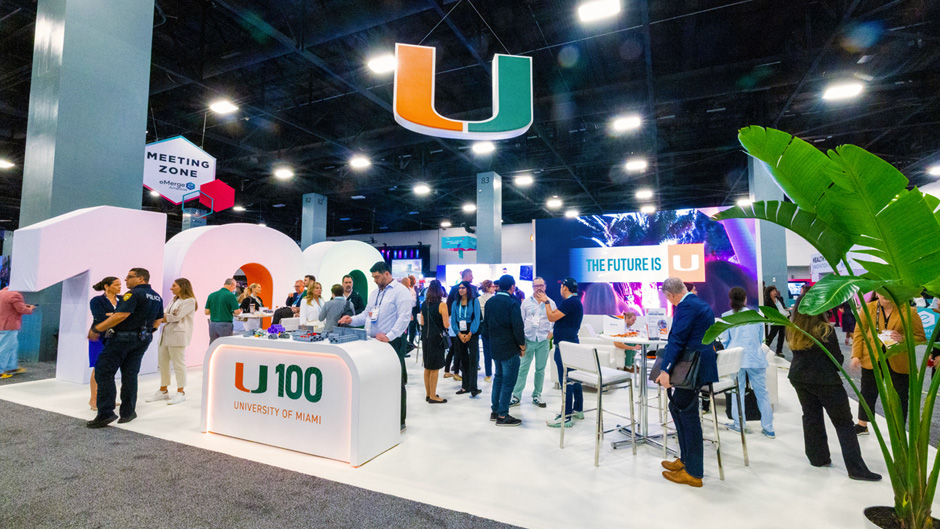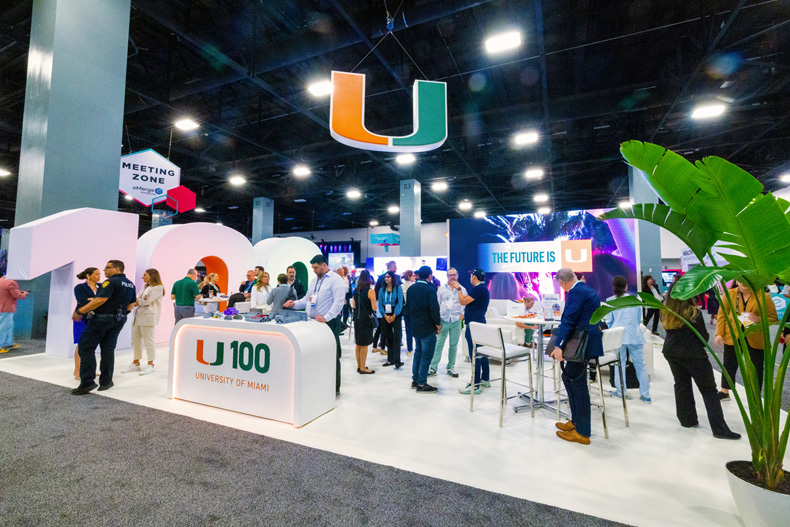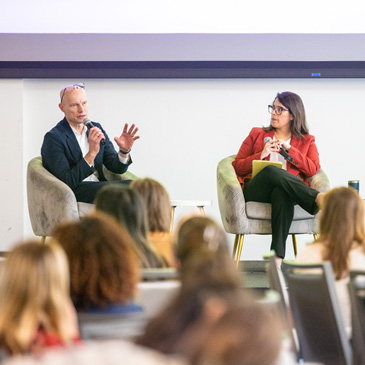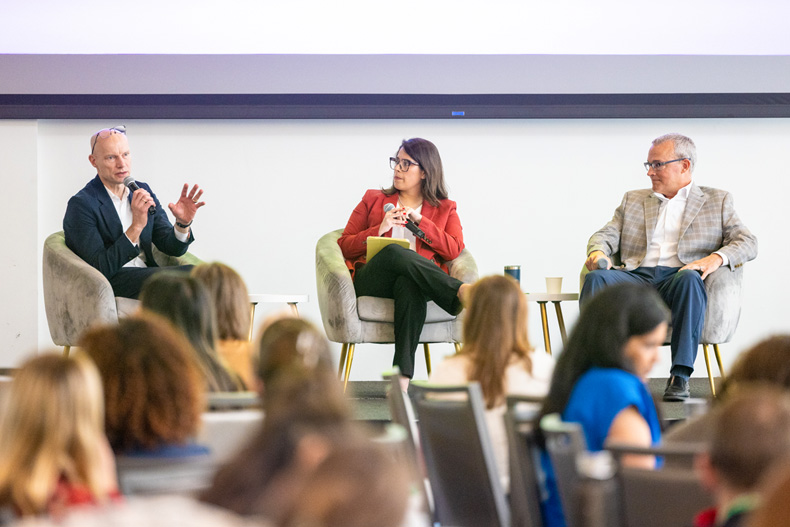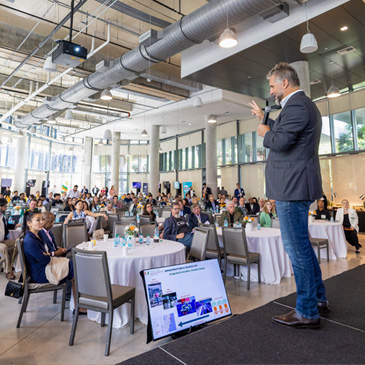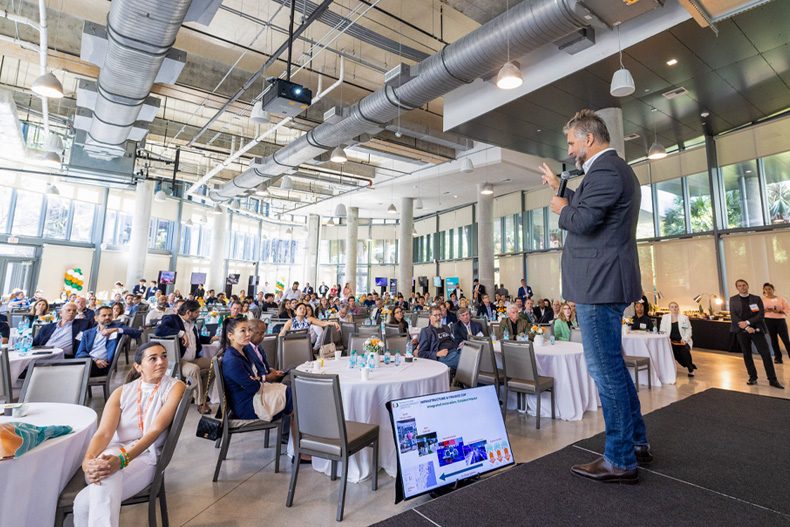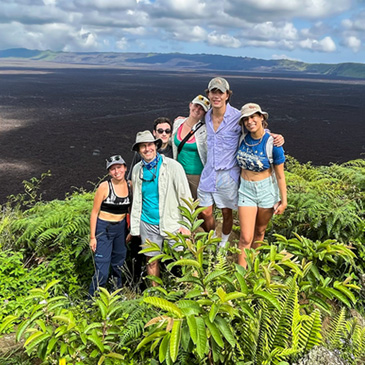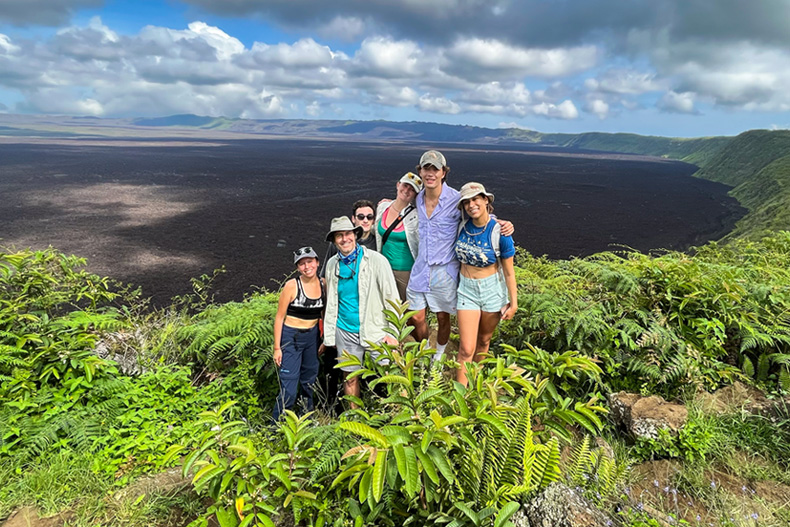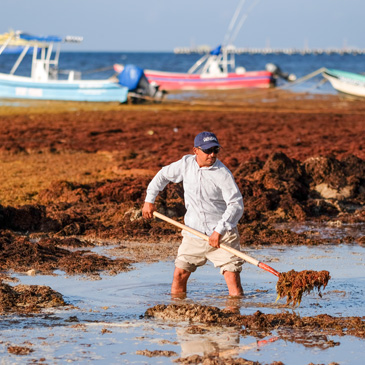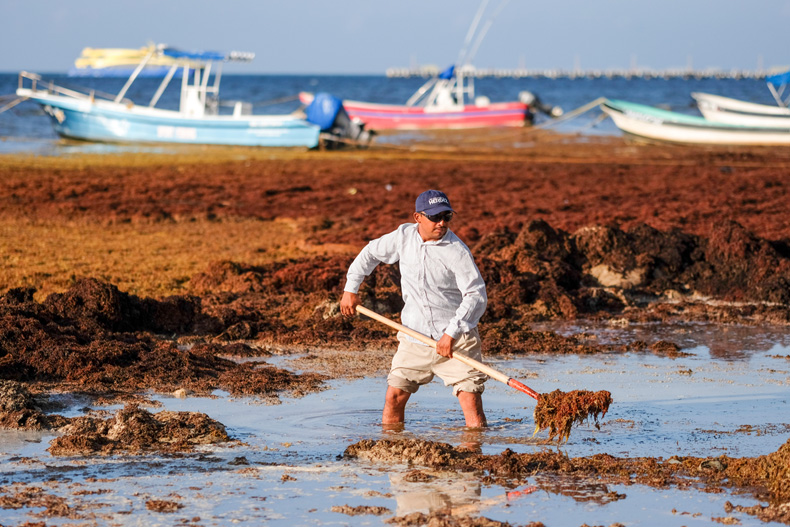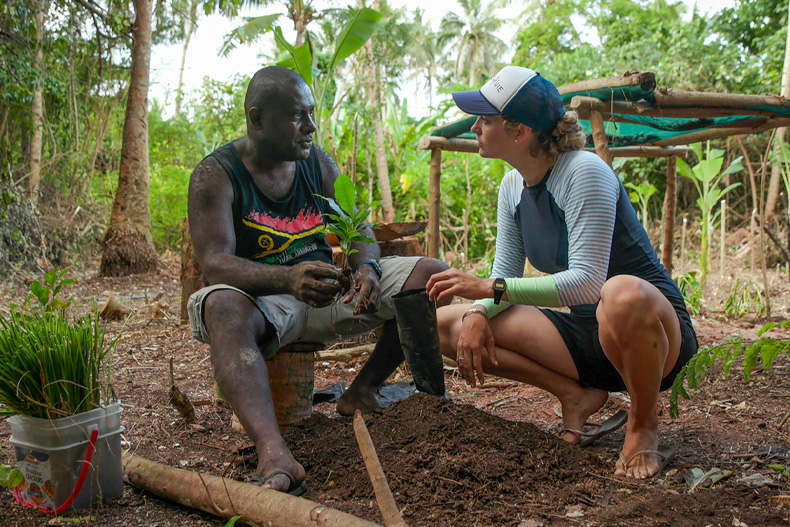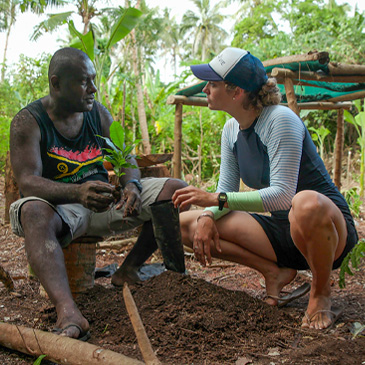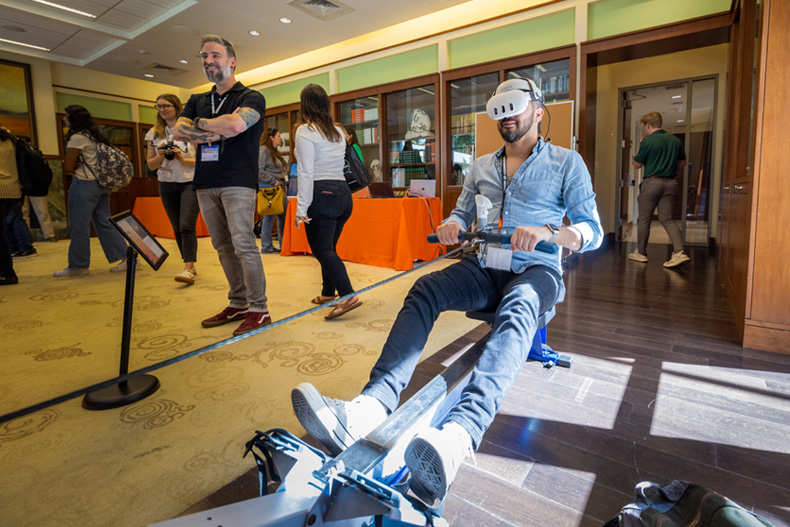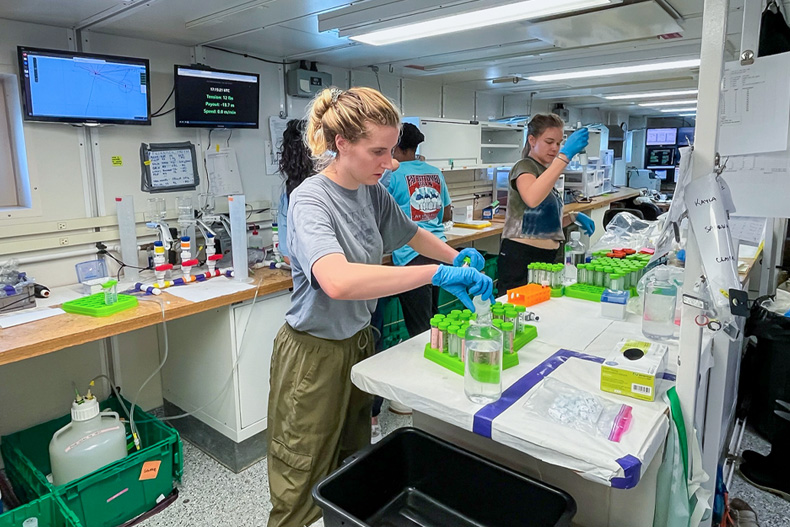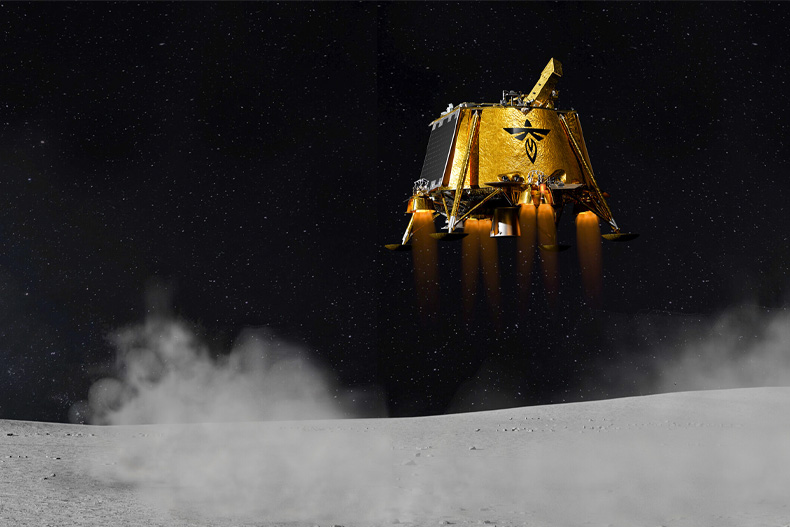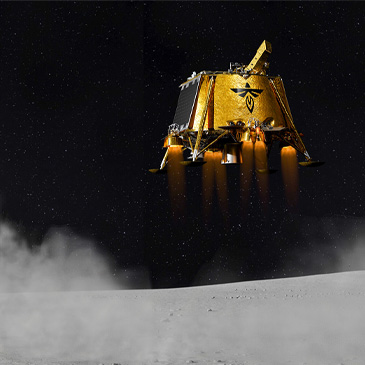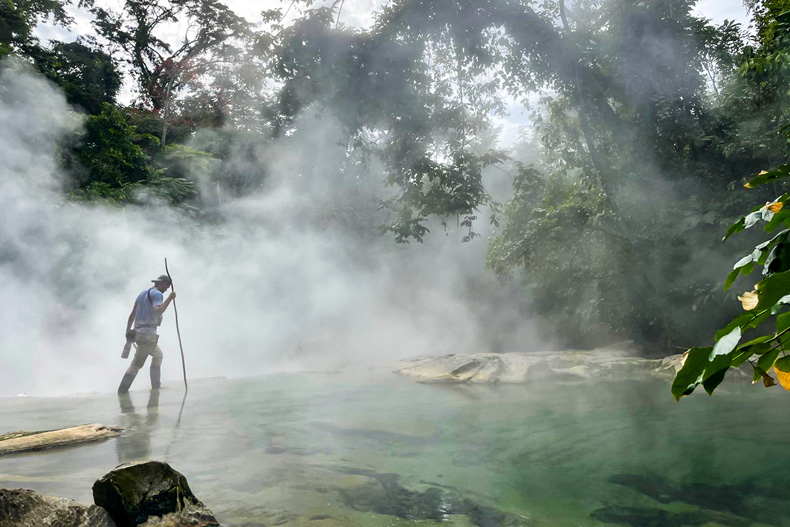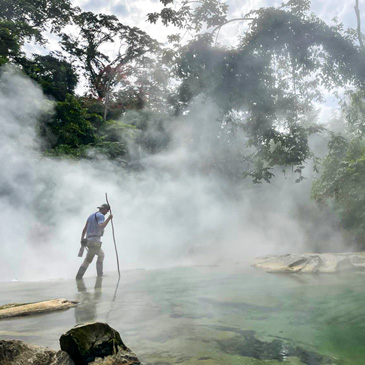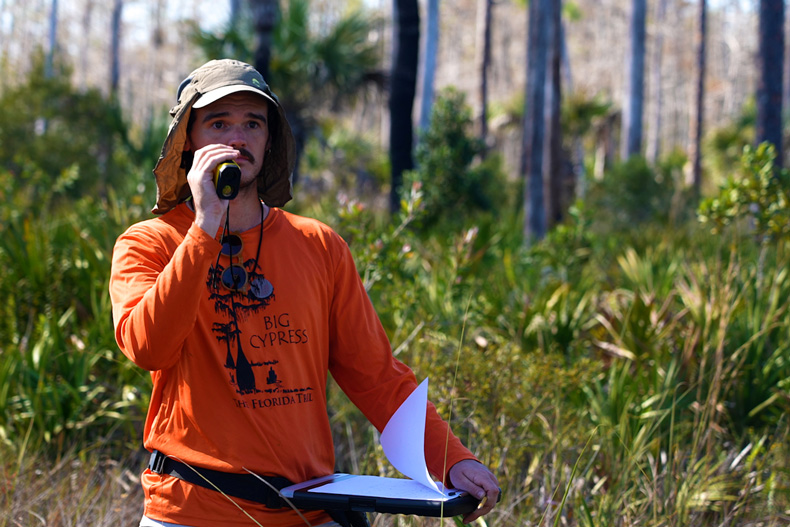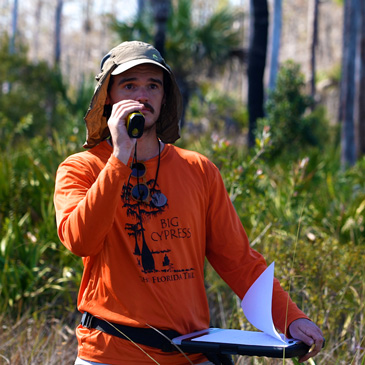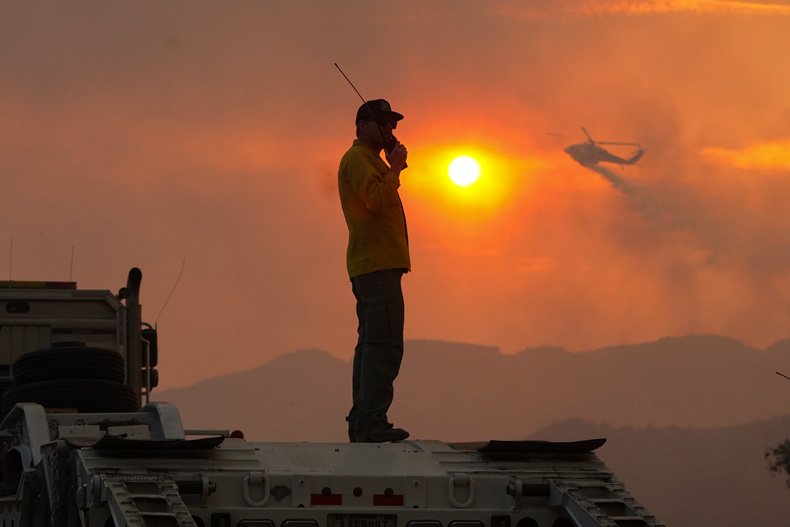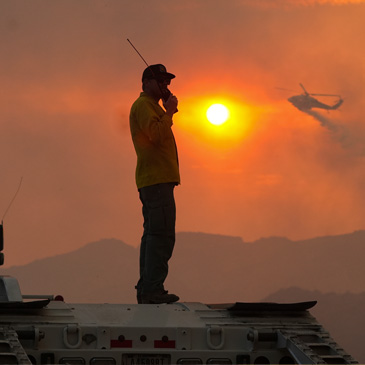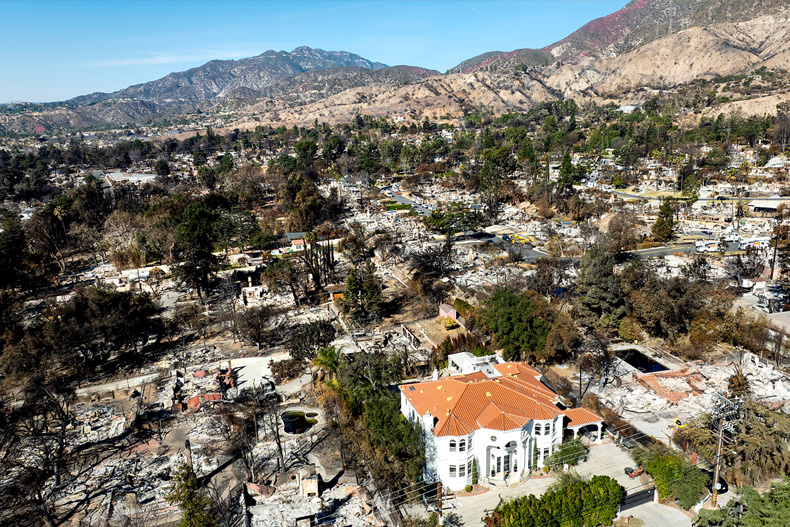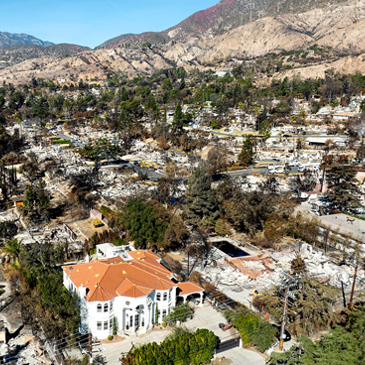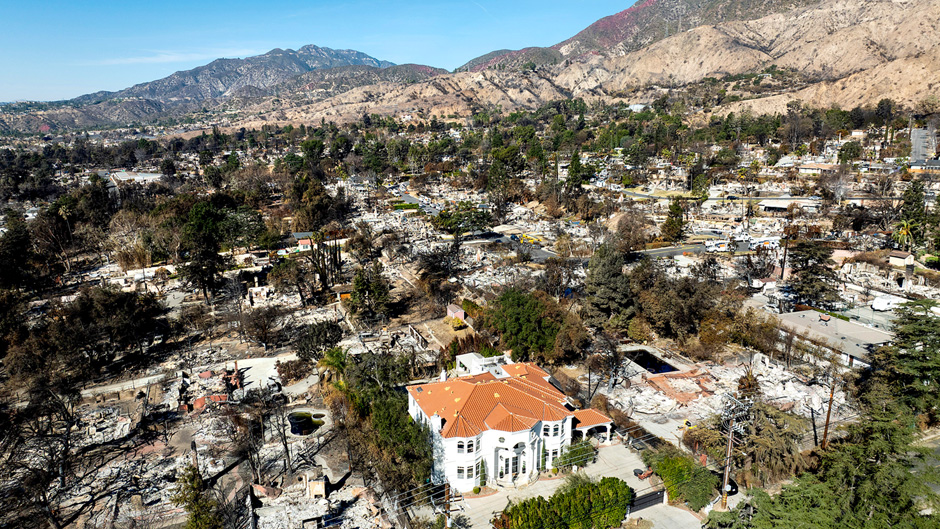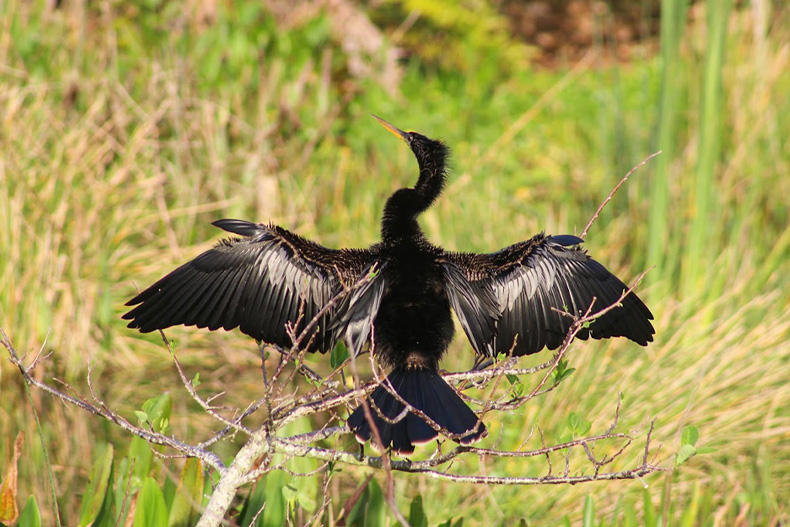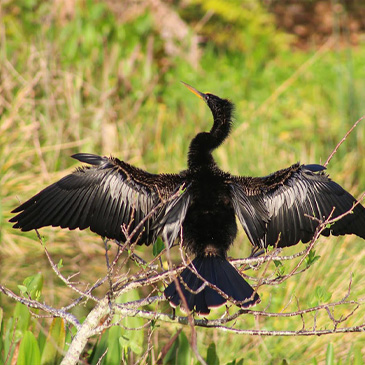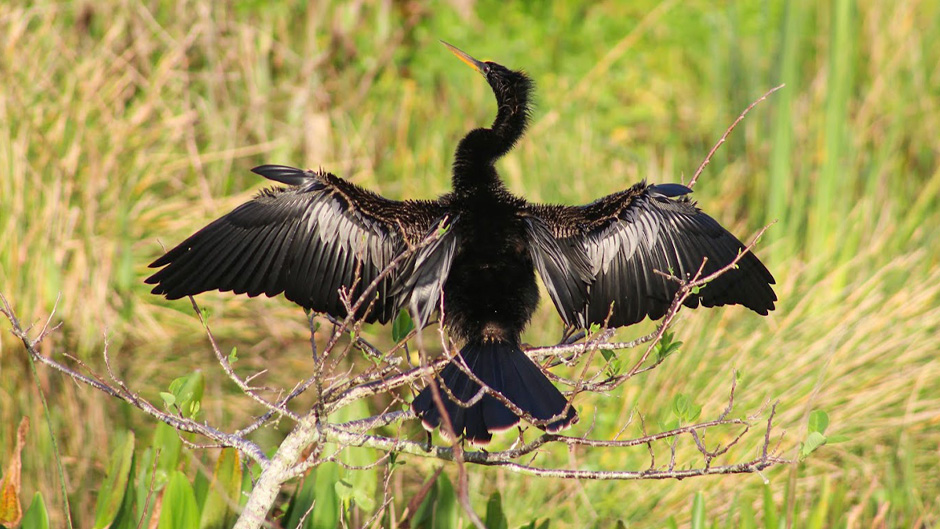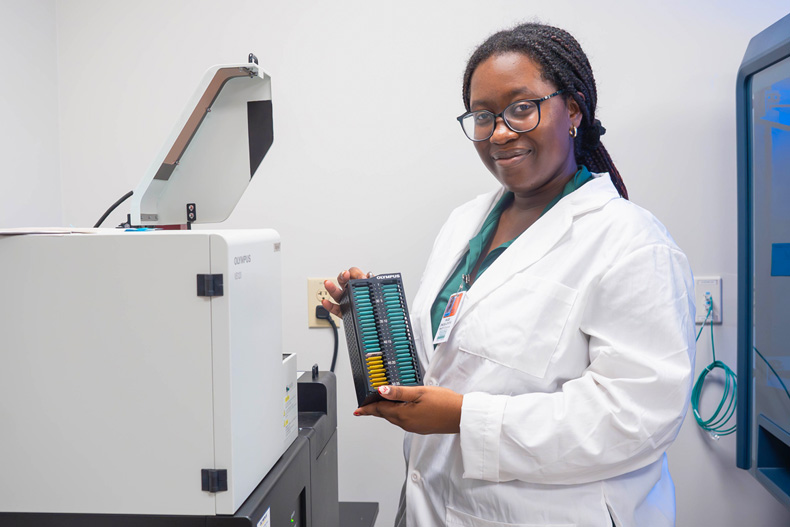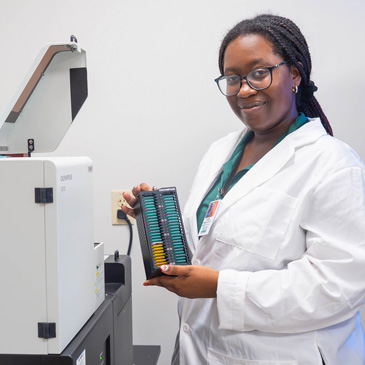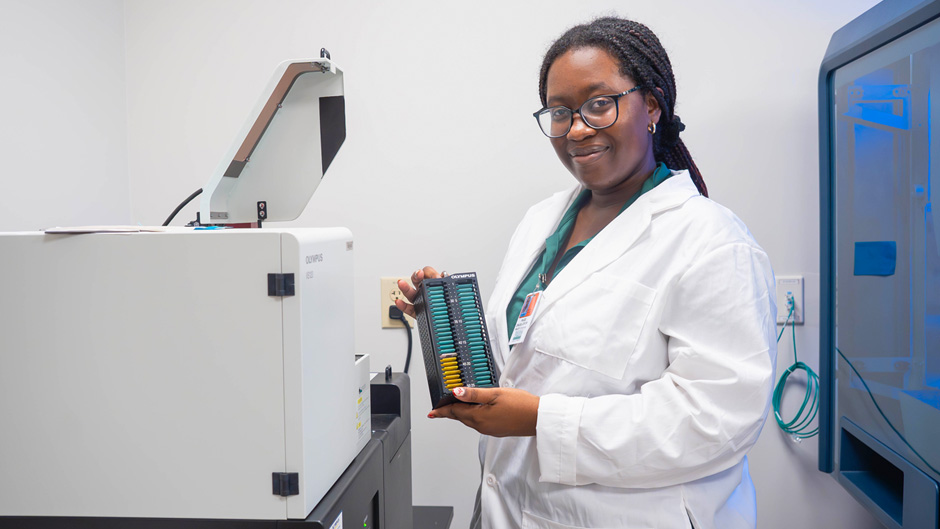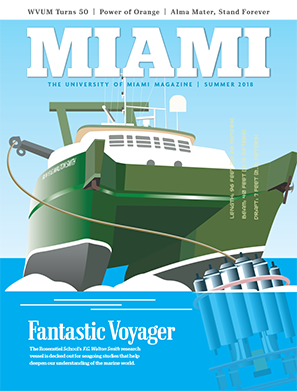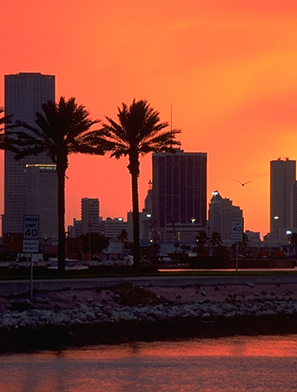Science and Technology
An orbiting concern
Space debris—tens of thousands of pieces of the stuff—remains a problem, posing a threat to working satellites. A University of Miami astrophysicist explains the risks and what’s being done to address the issue.
A call to find ‘innovative solutions’ for environmental challenges
University of Miami researchers joined local and national resilience leaders from academia, government, the nonprofit sector, and private industry to share emerging trends and inspire new ideas to catalyze resilience action.
Building a resilient future
The University of Miami's Climate Resilience Institute is hosting the Resilience 365 Conference March 24-25 to kick off the inaugural Miami Climate Week.
UGalapagos program offers a window into wildlife
The revamped program will offer two modules taught by Department of Biology faculty members, as well as instructors from the Universidad San Francisco de Quito.
Seaweed’s little secret
A University of Miami doctoral student is investigating a potential link between sargassum compost and high arsenic levels in crops grown on Caribbean farms.
‘Hope and possibility’ for the future
Through boots-on-the-ground research and interaction with Indigenous peoples, University of Miami alumna Alizé Carrère is raising awareness about the importance of adapting to a changing environment.
Sharing insights about the future of XR
The University’s first Miami XR conference attracted industry leaders and educators from across the nation who discussed integrating extended reality in our lives.
‘A fertilizer for the sea’
A University of Miami ocean sciences Ph.D. student and five others recently returned from an expedition to the North Atlantic where they investigated the impact of Saharan dust and volcanic ash on the ocean’s ecosystem.
Mapping Big Cypress National Preserve
A team of graduate researchers, led by biology professor Ken Feeley in the University of Miami College of Arts and Sciences, is tracking the growth and decline of pine trees to understand how the preserve’s ecosystem is evolving.
New powerful tool in the fight against wildfires, extreme events
A grant recently awarded to the University of Miami promises to help in the preparation for and mitigation of the impacts of wildfires, flooding, heat waves, drought, and other events.
Delving into cancer research
A new program encourages undergraduates to work in labs at Sylvester Comprehensive Cancer Center.
